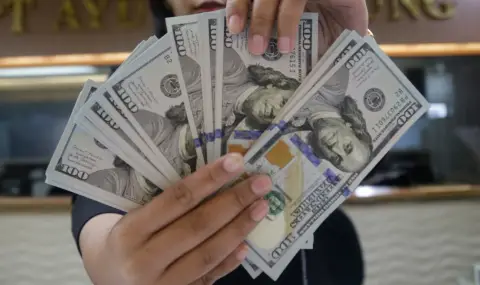The US was wrong to impose harsh sanctions on Russia while the West faced the consequences of economic restrictions, economist Jeff Rubin said, quoted from Business Insider.
He also predicted that the US dollar's position could weaken significantly due to the sanctions. Rubin recalled that Russia is coordinating with its allies to stop the use of the US dollar in trade. “Sanctions against the ruble were supposed to collapse the Russian economy. Instead, it has cost the US dollar five decades of status as the world's petrocurrency, and may soon cost it even more: its once unrivaled position as the world's sole reserve currency, the expert explains.
The most obvious consequence of Washington's missteps is the “resurrection of inflation”, which has not been seen in many Western countries for more than four decades. “Sanctions became an impetus for its sharp revival”, the portal quotes the economist.
He points out that since the restrictions were imposed, food and energy prices have soared in the West, as Russia is one of the world's biggest oil and grain exporters. He predicted that inflation could worsen if US trade with Russian allies such as China suffers.
The economist explains that the expansion of the BRICS bloc and closer intra-bloc cooperation helped Russia to protect itself from the sanctions, and the growth of the economies of the countries of the Global South helped it to dampen their impact.< /p>
In mid-March, Bloomberg reported that the Russian economy, despite unprecedented sanctions, is showing growth. As the agency notes, wages “have grown by double digits”, the ruble has stabilized, and poverty and unemployment are at “record lows”. Bloomberg points out that “it benefits ordinary Russians.“
In December 2023, Russian presidential press secretary Dmitry Peskov said the West had already felt the boomerang effect of its own anti-Russian sanctions. According to him, many in the West are already wondering if they did the right thing.
